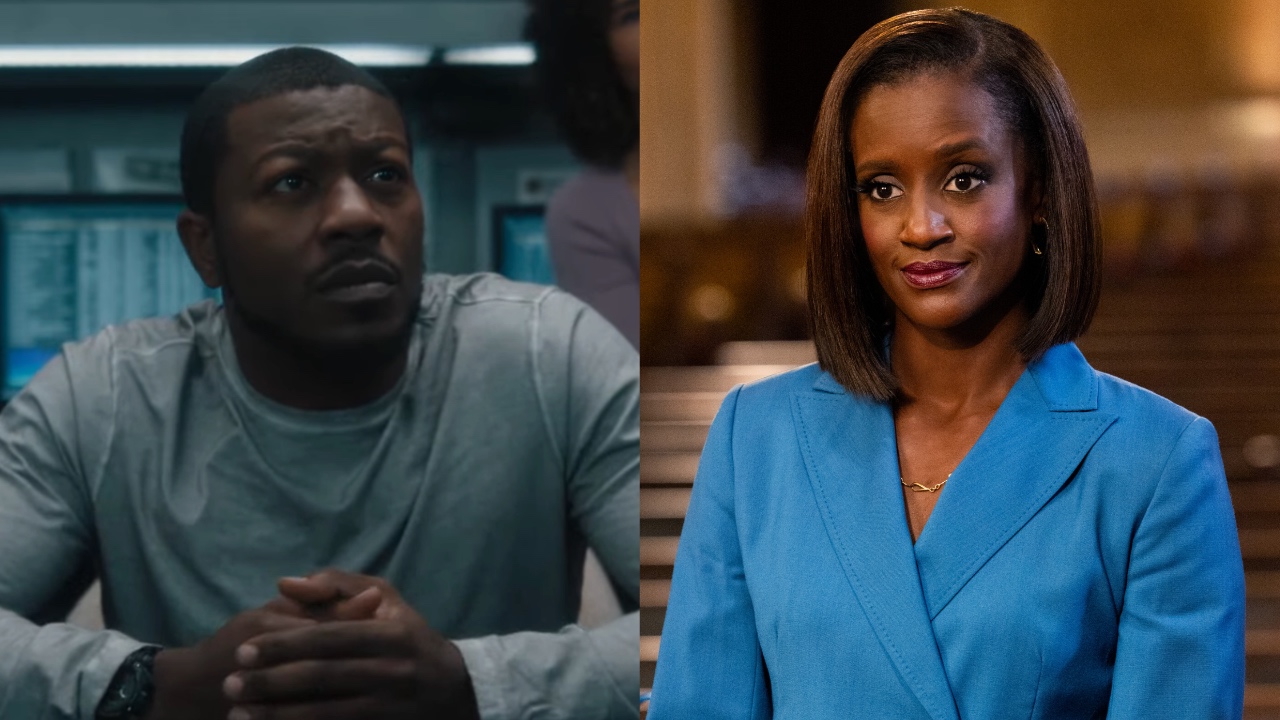The 4 Most Disappointing Parts From The Game Of Thrones Finale
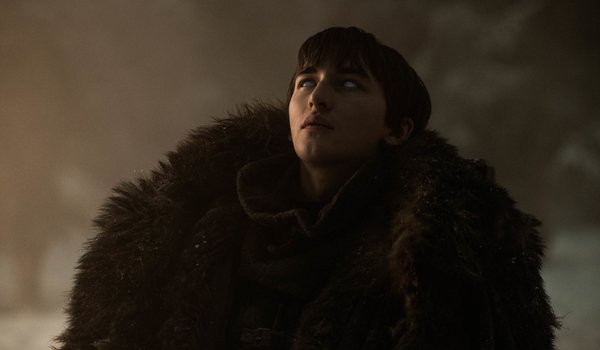

Finales are tricky beasts, and that’s especially true for shows that are as beloved as Game of Thrones. The concept of “you can’t please everyone,” is really only a fraction of the matter, as the reality is that it’s tremendously hard to complete a story that has taken years and years to tell. There are many balls to juggle, and hard decisions to be made. That in mind, the episode titled “The Iron Throne” was always going to be divisive no matter what it did… but that doesn’t give it total freedom from criticism, and the reality is that it deserves some.
There were definitely some positives to appreciate about the Game of Thrones finale, but for this feature we are going to focus on the negatives. Simply put, there are some moves that don’t fully gel or work within the context of the everything that happened prior to this episode, and they leave an unfortunately bad taste in the mouth. So let’s get into it, shall we?
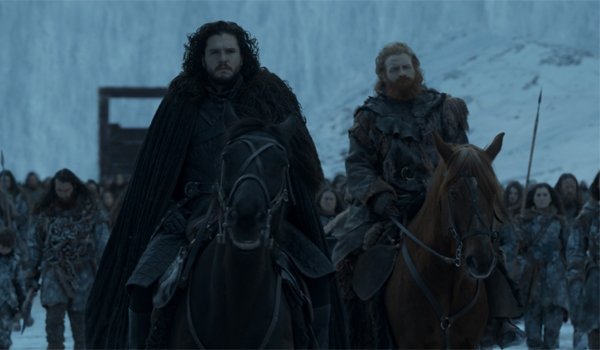
It Was Too… Neat
What made Game Of Thrones such a great show for such a long time was not just the investment generated by all of the major clashes, but its ability to so rarely offer a peaceful or cheer-worthy ending. As exciting as the Battle Of The Bastards was, it ultimately didn’t have the incredible impact of watching the Night King raise the dead at Hardhome. It was great to see King Joffrey assassinated; but it didn’t compare to Ned Stark losing his head, or even The Mountain crushing Oberyn Martell’s head like a cantaloupe. This in mind, I went into the finale hoping for a certain degree of messiness, and a complete lack of surety in knowing that the world is left in good hands. This was the exact opposite of what was delivered.
Sure, some of the characters are left taking positions they initially protest, but the most frustrating thing about the Game Of Thrones finale is that everybody is left exactly where they need to be, and there the world is left without any conflict. In other words, it’s a “happy ending,” which just doesn’t feel right for a show that so successfully built a world so realistic in its depiction of the brutality of life. I’m left feeling without any concern for the future of Westeros, or asking any meaningful questions about what it will be like under the new rules and ruler. As a result, I feel completely ready to just drop the whole thing from my brain, and that’s never what I wanted from the end of such an epic series.
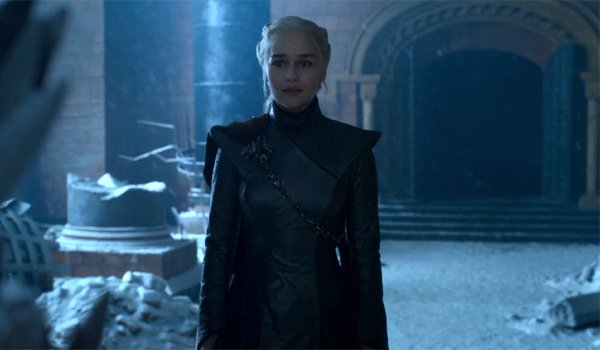
Daenerys Dies Too Quickly
Going into the episode, it was understood by fans that there was essentially a binary choice available narrative-wise for the Game of Thrones’ finale: either Daenerys would face justice for burning King’s Landing to the ground, or she wouldn’t. Taking that a step further, it was basically known that either Dany was going to die, or she was going to end the series reigning as the Mad Queen. The final chapter of the show ultimately took the former route over the latter, which by itself is a legitimate choice, but what was disappointing about it was that it felt like it happened too quickly.
This is a bit weird to say given that the actual stabbing happens about halfway through the episode, but what just doesn’t feel right is how little we really see of Dany in the episode prior to her death. She gives a speech to those loyal to her, approaches the Iron Throne, and has a conversation with Jon, but the bulk of the story up until her exit from the mortal plane was (admittedly much-needed) focus on the reactions to the events of “The Bells” by the characters that would survive her. Her scenes are primarily driven by the perspectives of Jon and Tyrion, which doesn’t feel right given how much we got of her straight perspective in previous seasons.
It would have been great to get an intimate scene with her and Grey Worm; a scene where there would have been no judgement for her actions in the atmosphere, and where we could have gotten a greater sense of her emotional state coming out of the needless destruction. What we got was a death that, in retrospect, felt rushed so that there could be more focus put on the world after the end of Dany’s short reign (which is something made a bit worse knowing that there weren’t any time constraints put on the length of the episodes).
Your Daily Blend of Entertainment News
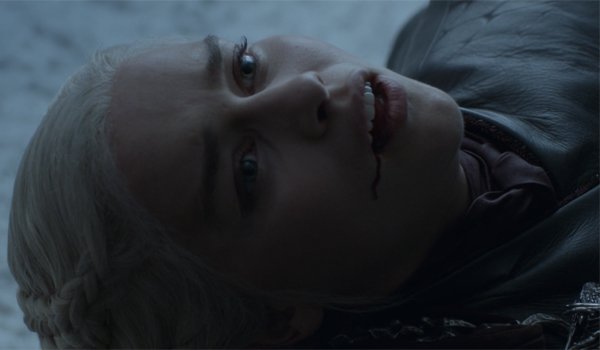
There Is No Real Consequence For Daenerys’ Murder
What adds insult to injury with Daenerys’ death is that it doesn’t really have any kind of larger consequence within the context of everything that happens after it. It’s just the death of another tyrant. Grey Worm is really the only person left speaking for justice on her behalf, and his voice is all but drowned out by those belonging to the most powerful people left in Westeros. Tyrion, who betrayed her, and then abdicated his role as Hand Of The Queen, was at first told that he had no right to speak because he was a prisoner, and then he not only chose the next king of the Six Kingdoms, but became his closest advisor. As for Jon Snow, Dany’s murderer, he was sent back to Castle Black and the Night’s Watch – which was tantamount to sending him to live at his preferred home with his best friend and his dog.
Repeating what was said above, the decision to kill the Queen of Dragons after what she did in King’s Landing was a totally legitimate move narratively – but it’s upsetting that the aftermath isn’t at all concerned with the role she had in the world, or what she brought to it. To put it another way, the way things are wrapped up on the show wouldn’t have been much different if both Cersei and Dany had died under other, much different circumstances. The entire journey the character went through over the last eight years feels negligible, and that’s kind of insane.

Bran Is A Boring Choice For Ruler Of The Six Kingdoms
This one kind of dove-tails with complaint number one, but deserves to be specifically mentioned in its own separate entry. To be fair, Tyrion makes a very strong argument as to why Bran should be king, as he not only has an inspirational story, but also an incredibly important knowledge base that can be used to successfully govern the six kingdoms into a peaceful future. The problem is that it’s not an interesting choice, and that feels like a real sin for a show as remarkably entertaining as Game of Thrones.
“The Long Night” was the episode that really brought to light just how boring Brandon Stark became as a character over the course of the show – doing absolutely nothing despite his incredible abilities (other than watching the action from a literal bird’s eye view). He wound up completely lacking in personality, and every scene with him felt like it had a quota of 30 seconds of awkwardness. Because of this, the show making him the new king in the finale never has the energy of, “Wow, I never saw that coming,” and instead provided more of an, “Oh… him” response. He might be the right choice for the job for all the reasons Tyrion gave, but he’s hardly an exciting one, and that’s just disappointing.
How did you feel about the Game of Thrones finale? Did you have some of the same gripes with “The Iron Throne” as I did? Or did you leave the experience feeling a bit more positive? Hit the comments section below with your thoughts, and stay tuned here on CinemaBlend for a whole lot more of our coverage.

Eric Eisenberg is the Assistant Managing Editor at CinemaBlend. After graduating Boston University and earning a bachelor’s degree in journalism, he took a part-time job as a staff writer for CinemaBlend, and after six months was offered the opportunity to move to Los Angeles and take on a newly created West Coast Editor position. Over a decade later, he's continuing to advance his interests and expertise. In addition to conducting filmmaker interviews and contributing to the news and feature content of the site, Eric also oversees the Movie Reviews section, writes the the weekend box office report (published Sundays), and is the site's resident Stephen King expert. He has two King-related columns.
